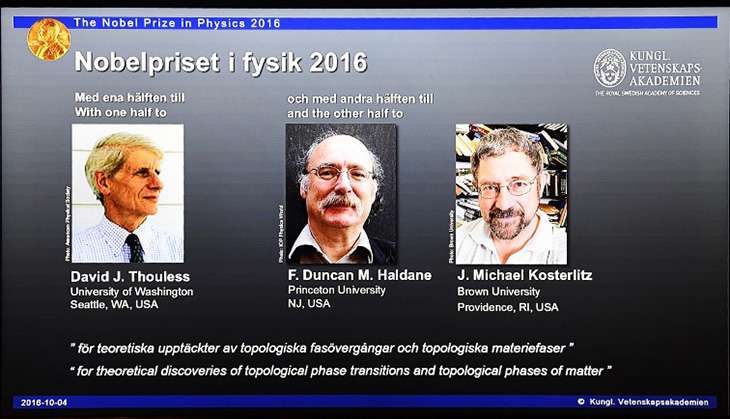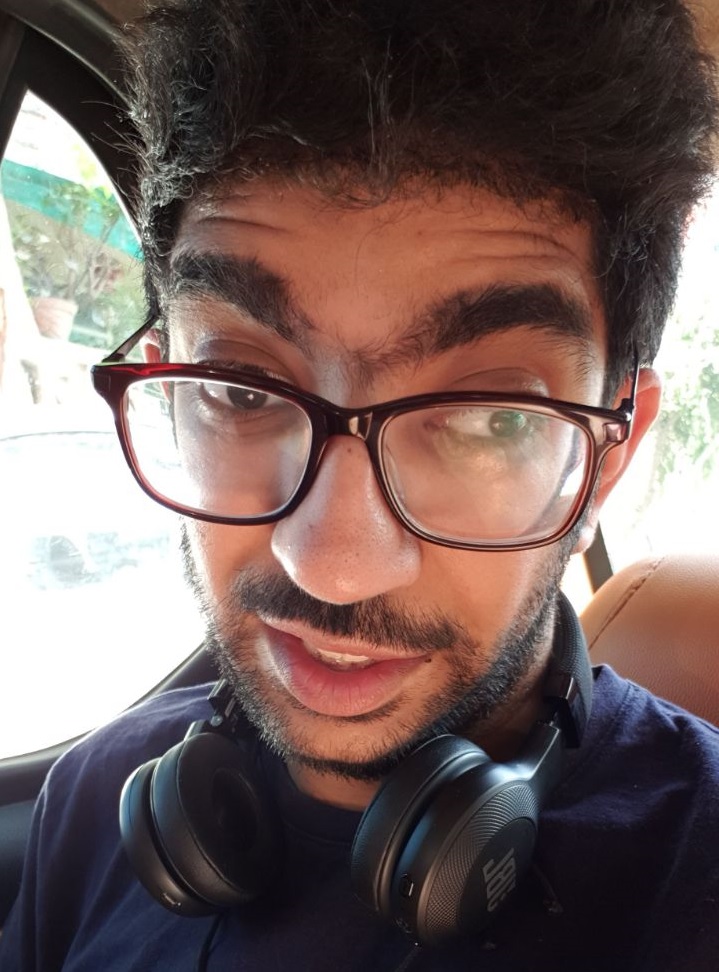British trio share physics Nobel for work on exotic states of matter

David J. Thouless is an emeritus professor at the University of Washington, F. Duncan M. Haldane is a professor of physics at Princeton University and J. Michael Kosterlitz is currently affiliated to Brown University. Those names might have been unknown to you before, but you'll probably remember them for a while now, because all 3 were just awarded the Nobel prize in physics.
The trio of British scientists were just awarded the Nobel prize in physics for their extensive studies of unusual states of matter. They were awarded the prize for their theoretical discoveries "of topological phase transitions and topological phases of matter".
Professor Duncan Haldane, speaking from the USA at 5:30 AM, told the crowd gathered, "I was, as everyone else is, very surprised. And very gratified... A lot of tremendous new discoveries that are based on this original work are now happening".
The three of them will be sharing the 8 million Swedish kronor prize (about 6.2 crore rupees). 82-year-old Thouless from Bearsden in Scotland will be getting half the award money while the other half will be shared equally by 65-year-old Haldane from London and 74-year-old Kosterlitz from Aberdeen, Scotland.

What is exotic matter?
Most matter exists in three states - solids, liquids and gases - as we know today. But at extremely low or high temperatures, matter starts to behave strangely.
According to the Nobel Committee, the work has "opened the door on an unknown world". This could kick start progress in quantum computing and other revolutionary technologies.
The "unknown world" is one where "matter can assume strange states," reads the press release on the Nobel prize website. "They have used advanced mathematical methods to study unusual phases, or states, of matter, such as superconductors, superfluids or thin magnetic films. Thanks to their pioneering work, the hunt is now on for new and exotic phases of matter. Many people are hopeful of future applications in both materials science and electronics."
The mathematics of exotic matter
These scientists relied heavily on a branch of mathematics called topology - properties that only change in integer steps. They used this specific branch to redefine what they though was possible in materials.
"In work that began in the 1970s, they demonstrated that superconductivity - the ability of electrons to whizz through matter with zero resistance - was possible in thin surface layers of materials," reported The Guardian.
These researchers used mathematics to explain the strange physical effects in rare states of matter such as superfluids , superconductors and thin magnetic films.
Exotic matter explained using not-so-exotic food
At least one person had brought his lunch to this event. Thors Hans Hansson, a professor of theoretical physics who was on the Nobel Committee for Physics this year, was the one with the food.
He took out a cinnamon bun, a bagel and a pretzel to explain the concept. He used his lunch to explain that the number of holes in each baked good represented a "topological invariant". You can have one hole, two, even three holes and you can also have zero holes, but there isn't anything such as half a hole, he went on to tell the crowd.
According to Hansson, a plate and cinnamon bun are the same topologically, owing to their lack of holes. Bagels and coffee cups, on the other hand, are in another category as they each have one hole.
Member of the Nobel committee for physics explains topology using a cinnamon bun, a bagel and a pretzel https://t.co/gORO04UYam
— The Nobel Prize (@NobelPrize) October 4, 2016
This insight, the prize winning insight, could explain what happened when matter changed phases in unusual circumstances. "They weren't looking at familiar phase changes, like ice melting into water, but strange changes that occur with very thin layers of matter, very cold substances or extreme magnetic fields," wrote Camila Domonoske in NPR.
First published: 4 October 2016, 17:51 IST






![BJP's Kapil Mishra recreates Shankar Mahadevan’s ‘Breathless’ song to highlight Delhi pollution [WATCH] BJP's Kapil Mishra recreates Shankar Mahadevan’s ‘Breathless’ song to highlight Delhi pollution [WATCH]](https://images.catchnews.com/upload/2022/11/03/kapil-mishra_240884_300x172.png)

![Anupam Kher shares pictures of his toned body on 67th birthday [MUST SEE] Anupam Kher shares pictures of his toned body on 67th birthday [MUST SEE]](https://images.catchnews.com/upload/2022/03/07/Anupam_kher_231145_300x172.jpg)






